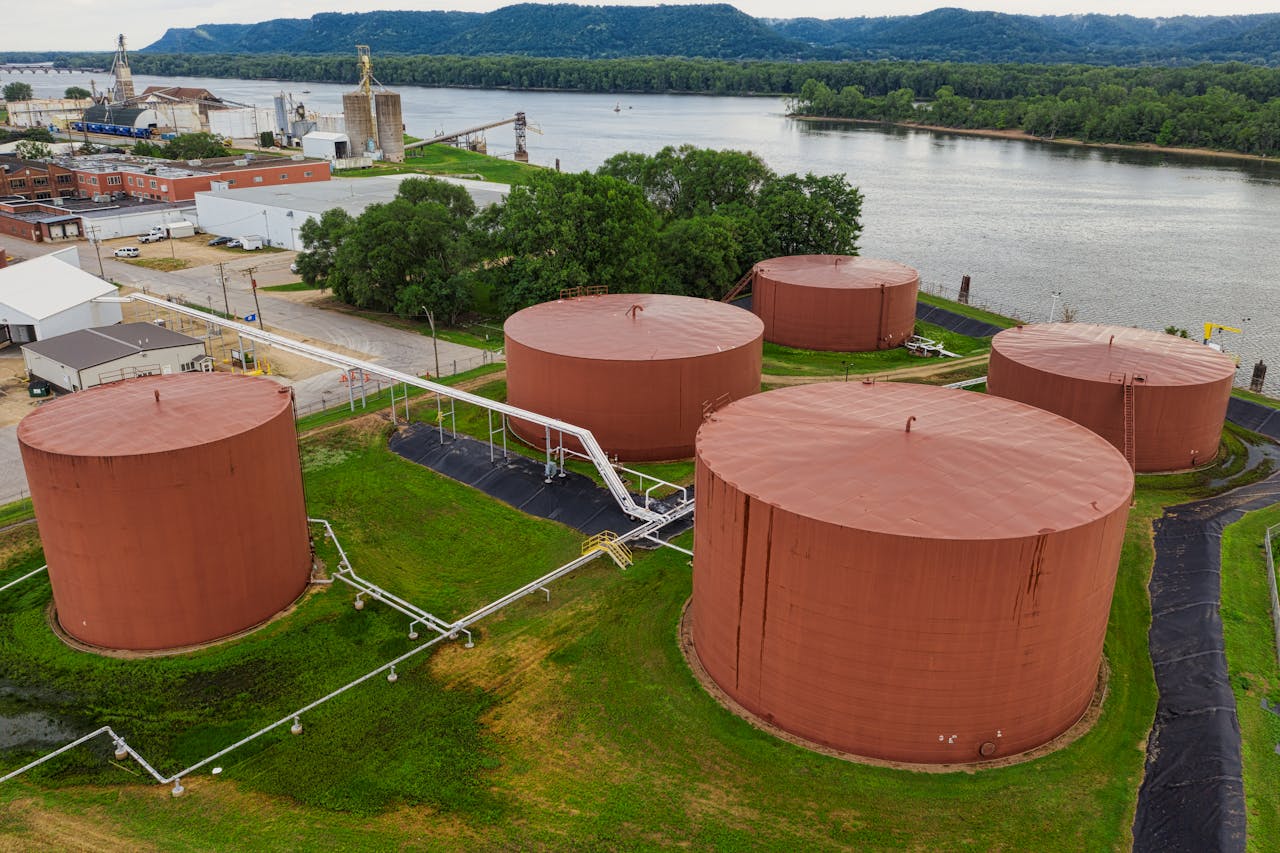Economic and Technical Evaluation of Projects

| Date | Format | Duration | Fees (USD) | Register |
|---|---|---|---|---|
| 16 Mar - 20 Mar, 2026 | Live Online | 5 Days | $3785 | Register → |
| 18 May - 05 Jun, 2026 | Live Online | 15 Days | $11515 | Register → |
| 19 Jul - 23 Jul, 2026 | Live Online | 5 Days | $3785 | Register → |
| 30 Nov - 11 Dec, 2026 | Live Online | 10 Days | $7735 | Register → |
| Date | Venue | Duration | Fees (USD) | Register |
|---|---|---|---|---|
| 16 Feb - 20 Feb, 2026 | Dubai | 5 Days | $5775 | Register → |
| 31 May - 11 Jun, 2026 | Riyadh | 10 Days | $11085 | Register → |
| 17 Aug - 21 Aug, 2026 | Lisbon | 5 Days | $6305 | Register → |
| 12 Oct - 16 Oct, 2026 | Kuala Lumpur | 5 Days | $5575 | Register → |
Did you know that companies employing advanced cost estimation reduce financial risks by 20-30%, particularly in infrastructure projects? This compelling statistic underscores the critical importance of rigorous economic and technical evaluation in today’s complex project environment.
Course Overview
The Economic and Technical Evaluation of Projects course by Alpha Learning Centre is meticulously designed to equip professionals with essential skills in assessing economic viability, conducting technical feasibility studies, and implementing comprehensive risk management strategies. This course focuses on advanced cost estimation techniques, life cycle cost analysis, and sustainability-driven project evaluations to ensure participants can effectively navigate the complex landscape of project investment decisions.
Why Select This Training Course?
Selecting this Economic and Technical Evaluation Course offers numerous advantages for professionals involved in project management, financial analysis, and engineering feasibility assessment. Participants will gain advanced knowledge of Monte Carlo simulations, parametric estimating, and value engineering techniques. The course provides hands-on experience with state-of-the-art financial analysis tools and real-world case studies, enabling attendees to optimise their project evaluation strategies effectively.
For organisations, investing in this training enhances overall project success rates and reduces financial risks. By ensuring that personnel are well-trained in economic feasibility assessment and technical viability evaluation, organisations not only protect their assets but also build sustainable practices. Research shows that enhanced contingency planning through Monte Carlo simulations and parametric estimating aligns budgets with market volatility, minimising overruns and improving stakeholder confidence in complex engineering initiatives. Life cycle cost analyses optimise long-term ownership costs, reducing operational waste and enhancing alignment with organisational sustainability goals.
Individuals who complete this course will benefit from enhanced career prospects as they become more valuable assets in their respective fields. The skills acquired through this training can lead to professional growth and increased responsibilities within their organisations. Studies indicate that professionals who master metrics like NPV and IRR are positioned to lead strategic investment decisions, with expertise in technical risk assessment and contract management enabling faster progression to senior roles in engineering and finance.
Transform your project evaluation capabilities – Register now for this critical advanced training programme.
Who Should Attend?
This course is suitable for:
- Project managers overseeing complex engineering or infrastructure projects
- Financial analysts evaluating investment viability in technical initiatives
- Engineers ensuring project feasibility and compliance
- Procurement specialists managing project contracts and costs
- Senior executives making strategic investment decisions
- Consultants advising on project optimisation and risk management
What are the Training Goals?
This course aims to:
- Equip professionals with tools to assess economic viability
- Enhance skills in technical evaluation for project success
- Enable accurate cost estimation and financial forecasting
- Strengthen decision-making through analytical techniques
- Foster expertise in managing project risks
- Develop proficiency in aligning projects with objectives
- Improve contract management and stakeholder communication
How will this Training Course be Presented?
The Economic and Technical Evaluation of Projects Course employs a comprehensive and innovative approach to ensure maximum knowledge retention and skill development. Expert-led instruction from seasoned industry practitioners forms the core of the course, providing up-to-date insights into modern evaluation methodologies and practical applications for today’s project environment.
The course utilises a blend of theoretical understanding and practical applications, allowing participants to apply their knowledge to realistic scenarios. Advanced educational methodologies create a personalised and engaging learning journey through:
- Interactive workshops with real-world case studies
- Expert-led lectures by industry practitioners
- Group exercises to simulate evaluation scenarios
- Digital tools for financial and technical analysis
- Peer discussions to share insights
- Practical assignments using modern software
Join us now and elevate your project evaluation expertise to new heights!
Course Syllabus
Module 1: Cost Estimation Techniques
- Analyse cost structures using activity-based costing
- Apply parametric estimating for rapid assessments
- Use Monte Carlo simulations for cost uncertainty
- Incorporate inflation and escalation factors
- Evaluate cost drivers in complex projects
- Leverage software for precise cost modelling
- Assess historical data for benchmarking
- Integrate contingency planning in estimates
Module 2: Life Cycle Cost Analysis
- Calculate total ownership costs over project life
- Compare capital and operational expenditure impacts
- Use discounting techniques for long-term costs
- Assess maintenance and replacement expenses
- Evaluate end-of-life disposal costs
- Apply sensitivity analysis to cost variables
- Align cost analysis with project objectives
Module 3: Economic Feasibility and Investment Appraisal
- Conduct net present value (NPV) calculations
- Evaluate internal rate of return (IRR) metrics
- Assess payback period and profitability index
- Apply cost-benefit analysis to public projects
- Use real options analysis for flexibility
- Analyse economic impacts of project delays
- Incorporate tax implications in appraisals
- Evaluate financing options and their costs
- Assess project viability under market volatility
- Align appraisals with strategic goals
Module 4: Technical Viability Assessment
- Verify compliance with industry standards
- Evaluate material and equipment suitability
- Assess technical risks in project design
- Analyse system integration challenges
- Review scalability and adaptability factors
- Ensure alignment with regulatory requirements
Module 5: Risk Analysis and Mitigation Strategies
- Identify financial and technical risk factors
- Apply probabilistic risk assessment models
- Develop risk registers for project monitoring
- Use decision tree analysis for uncertainties
- Implement risk transfer through contracts
- Evaluate insurance options for risk coverage
- Design contingency plans for risk events
- Monitor risks using real-time dashboards
Module 6: Contract Management and Cost Control
- Analyse contract types and their cost implications
- Negotiate terms to optimise project budgets
- Monitor contract performance using KPIs
- Implement change order management processes
- Evaluate contractor claims and disputes
- Use earned value management for control
- Align contracts with project deliverables
Module 7: Stakeholder Analysis and Value Engineering
- Map stakeholder expectations and influence
- Conduct value engineering workshops
- Optimise project scope for cost efficiency
- Balance quality and cost in design choices
- Use stakeholder feedback for project refinement
- Evaluate trade-offs in project specifications
- Implement value tracking metrics
- Align project outcomes with stakeholder goals
Module 8: Sustainability in Project Evaluation
- Assess environmental impacts of project decisions
- Incorporate carbon footprint in cost models
- Evaluate renewable energy integration options
- Analyse lifecycle sustainability metrics
- Apply green standards to technical designs
- Assess social impacts on local communities
- Use sustainability software for reporting
Training Impact
The impact of economic and technical evaluation training is evident through various real-world case studies and data, which demonstrate the effectiveness of structured programmes in enhancing project outcomes and decision-making capabilities.
Research indicates that organisations implementing structured project evaluation training programmes have demonstrated measurable benefits in both risk reduction and cost optimisation. A case study from the Asian Development Bank’s health sector analysis showed that conducting economic appraisals of health facility investments in Cambodia provided actionable insights for optimising resource allocation in public health initiatives.
These case studies highlight the tangible benefits of implementing advanced project evaluation techniques:
- Improved financial risk management through advanced cost estimation methods
- Enhanced technical feasibility assessment and regulatory compliance
- Increased project success rates through comprehensive risk analysis
- Strengthened stakeholder confidence through robust evaluation frameworks
By investing in this advanced training, organisations can expect to see:
- Significant improvement in project evaluation performance indicators
- Improved ability to handle complex infrastructure and engineering projects
- Enhanced decision-making capabilities through analytical techniques
- Increased competitiveness through comprehensive project assessment strategies
Transform your career and organisational performance – Enrol now to master Economic and Technical Evaluation of Projects!
FAQs
4 simple ways to register with Alpha Learning Centre (ALC):
Website:
Log on to our website www.alphalearningcentre.com. Select the course you want from the list of categories or filter through the calendar options. Click the “Register” button in the filtered results or the “Manual Registration” option on the course page. Complete the form and click submit. Telephone:
Call +971 58 102 8628 or +44 7443 559 344 to register. E-mail Us:
Send your details to [email protected]. Mobile/WhatsApp:
You can call or message us on WhatsApp at +971 58 102 8628. Believe us; we are quick to respond to.
Yes, besides English, we do deliver courses in 17 different languages which includes Arabic, French, Portuguese, Spanish—to name a few.
Our course consultants on most subjects can cover about 3 to maximum 4 modules in a classroom training format. In a live online training format, we can only cover 2 to maximum 3 modules in a day.
Our public courses generally start around 9:30am and end by 4:30pm. There are 7 contact hours per day.
Our live online courses start around 9:30am and finish by 12:30pm. There are 3 contact hours per day. The course coordinator will confirm the Timezone during course confirmation.
A valid ALC ‘Certificate of Training’ will be awarded to each participant upon successfully completing the course. Accredited certificates from HRCI, PMI, CPD, IIBA are also available upon request and additional fees.








